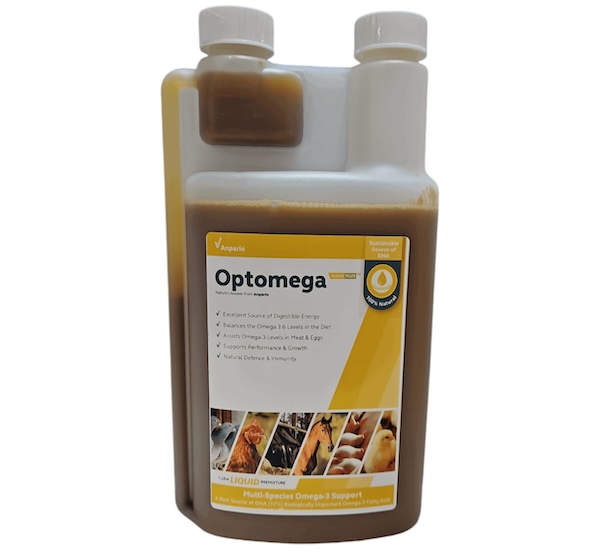Can You Increase Omega-3 in Eggs by Feeding Chickens a Certain Diet?
Can You Increase Omega-3 in Eggs by Feeding Chickens a Certain Diet?
Yes, you can boost the omega-3 content in eggs by adjusting your chickens' diet. By adding omega-3-rich supplements like fish oil, flaxseed, or microalgae to your hens' feed, you enhance the nutritional value of the eggs and support your flock's health.
This simple change can produce eggs that promote heart, brain, and immune health for those who eat them.
For Australian chicken keepers looking to maximise the benefits of their eggs, adding a supplement like Optomega Algae Plus Feed Supplement is a game-changer.
Key Takeaways
- Adding flax seeds, fish oil or microalgae in your chickens' feed can significantly increase omega-3 levels in eggs, benefiting both chickens and consumers
- Supplements like microalgae provide high levels of DHA, a valuable omega-3 fatty acid
- Optomega Algae Plus is an effective way to raise omega-3 levels in eggs
- Improving egg nutrition appeals to health-conscious buyers, potentially boosting demand for your eggs
Understanding Omega-3 Fatty Acids
Omega-3 fatty acids are essential nutrients important for heart, brain, and immune health.
The most beneficial types are EPA (eicosapentaenoic acid) and DHA (docosahexaenoic acid), which our bodies use effectively.
While plants like flaxseed contain ALA (alpha-linolenic acid), humans don't convert ALA to EPA and DHA very efficiently.
How Diet Influences Omega-3 Levels in Eggs
What your chickens eat directly affects the nutrients in the eggs they lay.
Research published in Food Research International shows that feeding hens omega-3 supplements can increase the omega-3 content in eggs by up to 8-10 times compared to regular eggs.
Omega-3 Egg Facts
- Standard Eggs: Typically contain about 50 mg of omega-3 fatty acids per egg, mostly as ALA.
- Omega-3 Enriched Eggs: Can contain anywhere from 150 mg to over 500 mg of omega-3s per egg, including higher levels of EPA and DHA.
- Health Benefits: Higher omega-3 levels in eggs contribute to better heart and brain health for consumers.
- Consumer Demand: There's a growing market for omega-3 enriched eggs, as people become more health-conscious.
Best Feed Enhancers to Increase Omega-3 in Eggs
1. Flaxseed
Flaxseed is rich in ALA, an omega-3 fatty acid. Adding flaxseed at 10-20% of the chicken feed can raise the ALA content in eggs. However, because humans convert less than 5% of ALA to EPA and DHA, the health benefits are limited compared to other options.
2. Fish Oil
Fish oil provides direct sources of EPA and DHA. Including fish oil at 1-2% of the diet can significantly boost these omega-3 levels in eggs. Some farmers report increases of DHA content by up to 500 mg per egg. While fish oil is cost-effective, it might slightly change the taste of the eggs.
3. Microalgae
Microalgae, like Schizochytrium sp., is a powerful source of DHA and EPA. Adding microalgae oil at just 0.5-1% can effectively increase DHA levels in eggs without affecting taste. It's a sustainable and vegetarian-friendly option that doesn't alter the egg's flavour.
Why Choose Microalgae Over Other Options
Microalgae offers several benefits over flaxseed and fish oil:
- Neutral Taste: Unlike fish oil, microalgae doesn't give the eggs a fishy taste.
- High DHA Levels: Microalgae is very rich in DHA, boosting the health benefits of the eggs.
- Stability: Omega-3s from microalgae are stable and less likely to degrade.
- Sustainability: Growing microalgae has less environmental impact than producing fish oil.
Introducing Optomega Algae Plus Feed Supplement
Optomega Algae Plus Feed Supplement is a great addition to your chickens' diet.
It contains algae oil from Schizochytrium sp., providing a high level of DHA.
By adding this supplement to your feed, you can significantly raise the omega-3 levels in your chickens' eggs.

→ Buy now
Practical Tips for Increasing Omega-3 in Eggs
- Start Slowly: Introduce the supplement gradually so your chickens can adjust.
- Be Consistent: Stick to a regular feeding schedule to keep omega-3 levels steady.
- Watch Egg Quality: Check the eggs for any changes, but microalgae supplements usually don't affect taste or texture.
- Balanced Diet: Keep providing a well-rounded diet to support your chickens' overall health.
- Proper Storage: Store the supplement in a cool, dry place to keep it effective.
Boost Your Egg Production with Omega-3 Rich Diets
By making a simple change to your chickens' diet, you can produce eggs that are not only tasty but also packed with health benefits. With more people looking for nutritious food options, increasing omega-3 in your eggs can help you stand out in the market.
Ready to improve your egg production and meet the rising demand for omega-3 enriched eggs? Contact us today to find out more about Optomega Algae Plus Feed Supplement and how it can benefit your flock.




